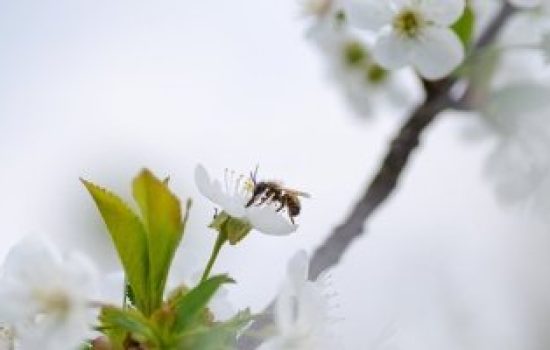NARC HONEY BEE PROGRAM
Pakistani Govt have established a few institutes dedicated to honeybee research. Research in agriculture at federal level was initiated by PARC in July 1976 under a coordinated program of "Honeybee Management" funded through PL-480 grant. When this program was terminated , the project was transferred to the Non-Development budget of PARC as its core activity in 1987.A full fledged Honeybee Research Institute was established with its own building, including laboratories funded by the GTZ in 1989.
HBRI
The Honeybee Research Institute (HBRI) has helped promote beekeeping in Pakistan. Several attempts were made for introduction of A. mellifera by various scientists from 1927 to 1976 but without any success.After the 16 unsuccessful attempts, PARC took this challenging job and during 1977 imported some honeybee A.Out of these some were multiplied at research stations and few of them were given to progressive beekeepers associated with indigenous honeybee at that time.PARC was succeeded to introduce the new species of bees and traditional beekeeping switched to beekeeping A.mellifera in modern beehives and most of the beekeepers are now getting up their optimum results.
HBRI has practically promoted beekeeping in terms of colony management, queen breeding, honey extraction techniques, reduction in post-harvest losses, nutrition, pests and diseases and pollination of entomophilous crops, improving the skills of beekeepers, wax recycling for wax foundation sheets through training to agricultural extension staff, beekeepers, universities, research institutes and technical training institutes.Now at present scenario, there are 400,000 colonies of this new species and honey production increased tremendously. This is the success story of PARC for the establishment of this species in country.
Facilities
- Improvement of honeybee management technology to increase hive products.
- Intensive honeybee queen breeding.
- Control the pests and diseases using low cost indigenous material.
- Promotion of honeybee by products technology and value added products.
- Conservation and management of pollinators.
- To check the Strengthen of honey analysis lab at NARC.
- Capacity building and awareness raising for conserving of indigenous honeybee species.
- Organized training courses for livelihood.

Technologies Developed
- The cost benefit package of technology consist of 5 to 200 bee colonies devised for amateurs, beginners and professional beekeepers.
- The Migratory beekeeping introduced after surveying nectar and pollen resources that helps to increase the overall national production.
- A simple methodology technique is devised for production of new queens and 20-30% annual re-queening in apiary resulted populous colonies with less swarming tendency and increased honey production.
- The schedule of disease pests and predators control was worked out. Introduced shaking technique incorporated with immersion paraffin wax at 110 C increased life of wooden bee hives and controlled American Foul Brood disease.
- Summer management techniques developed to overcome the earth period impacts. It also includes supplemental feeding, placement of colonies at cooler places and control of hornets.
- Winter management techniques were devised. It also included additional feeding, placing colonies in group, less inspection covering colonies with straw canopies and narrowing hive entrance.
- The new type of pollen trap devised for collecting pollen from beehives.
Contribution of PARC in Promotion of Honey Production in Pakistan
- The Honeybee Research Programme (HBRP), NARC of Pakistan Agricultural Research Council (PARC) is one of the important programme for the income generation and poverty alleviation..
- Established the occidental honeybee Apis mellifera in Pakistan after more than 16 unsuccessful attempts from 1927 to 1977.
- Developed management technologies for higher honey production.
- The Colony yield increased from 4 kg to 25 kg and annual honey production increased from 250 ton to more than 7,500 ton.
- Almost 7000 beekeepers are to be trained, out of these 2600 beekeepers are maintaining more than 3,00,000 honeybee colonies in modern Langstroth hives.
- We started the use of honeybees for pollination of vegetables-seed, oil-seed, fodder-seed crops and fruit trees for yield increase and quality seed.
- Organized 17 national and 72 regional beekeeping training courses.
- We strengthened the provincial beekeeping units at Faisalabad and Tarnab, Peshwar and established new units in Quetta, Hyderabad and Azad Kashmir.
- Set up beekeeping units at Gilgit and Nagar with the collaboration of Aga Khan Rural Support Programme.
- Set up beekeeping unit at University of the Punjab, Lahore for teaching, demonstration and research purposes.
National and International Linkages Developed
- To provide the resilience of mountain people to manage the effects of global change.
- To increase the incomes of mountain men and women .
- To provide promotion of the value chains of bee products (Pollen, Propolis, Beeswax, Royal Jelly and bee venom) and pollination services .
- Building of human, institutional capacities and regional cooperation.
- Farmers market (PVT), Hydroponically Grown, Rawalpindi.
- Hashoo Foundation Northern Areas of Pakistan.
- Qarshi Industries at Hattar, Industrial Area, District Hari Purr Pakistan.
- Zari Taraqiati Bank (ZTBL).
- Bee keepers Association, Tarnab Peshawar.
- University of Agriculture, Peshawar
- Department of Agriculture, AJK.
- All Pakistan beekeepers exporters and honey traders association is available in Islamabad.
- DANAS Pharmaceuticals Pakistan Islamabad.
- Pakistan Beekeepers Federation, Islamabad.
- AKRSP
- Punjab Seed Corporation.
- NationalCenterfor Rural Development (NCRD).
- SMEDA (Small and Medium enterprises development authority).
Previous
Next
